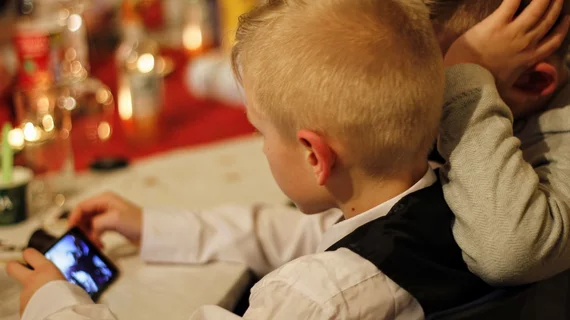Experts urge reopening radiology practices not to lose sight of childcare challenges
Radiology practices reopening across the U.S. will likely require longer hours to grapple with sizable backlogs and extra cleaning demands. And a group of female physicians is urging their peers to not lose sight of childcare in the rush to make their businesses whole.
A team of Michigan Medicine experts spelled out some of their concerns in a new opinion piece, published Thursday in JACR. They backed their claims with a recent survey of almost 200 imaging team members across the Ann Arbor-based enterprise.
The authors noted that 92% of respondents said they had children who would require care, with 59% having more than one. A “disquieting” 32% said if daycares remain closed, they’d either be unable to come to work or face “major challenges” making the journey.
“It is notable that several respondents mentioned the stress of working during the pandemic, feeling generally overwhelmed with parenting responsibilities, or a sense of desperation,” wrote Aparna Joshi, MD, an assistant professor of radiology at the University of Michigan, and colleagues. “These feelings cannot be ignored as they signal burnout and could contribute to development of mental health disorders in radiology workers.”
The problem is exacerbated by the fact that many are on reduced pay and cannot afford help and may be concerned about the dangers of bringing grandparents into the fold. And it’s an issue that touches all members of the imaging team, their survey found, including technologists, residents, administrators and clerical workers.
Joshi et al. cited a separate survey out of England which found that women were 1.5 times more likely to have lost their job or quit during the pandemic. Yet in those instances, moms said they did twice as much childcare and housework as their partner, versus equal delegation when dad quit. Prior surveys at Michigan Medicine before the pandemic indicated that burnout rates were already twice as high for women in its radiology department (38%) versus their male counterparts (19%).
The small pre-proof analysis may serve as further evidence that the pandemic is hitting female radiologists harder than the rest, the team asserted.
“These factors could have an important downstream effect on females’ career advancement as well as happiness and well-being,” argued Joshi and colleagues. “This highlights the importance of watchful support of radiology workers, especially women and other vulnerable groups such as single parents, who are likely to face even higher pressures.”
The team concluded by recommending a “thoughtful” approach to resuming regular care, with large health systems like Michigan Medicine considering free or subsidized childcare (something that Vanderbilt has also explored). Smaller practices, meanwhile, might try providing subsidies or assistance with locating daycare services with extended hours.
Read more of their recommendations for free in the Journal of the American College of Radiology here.

